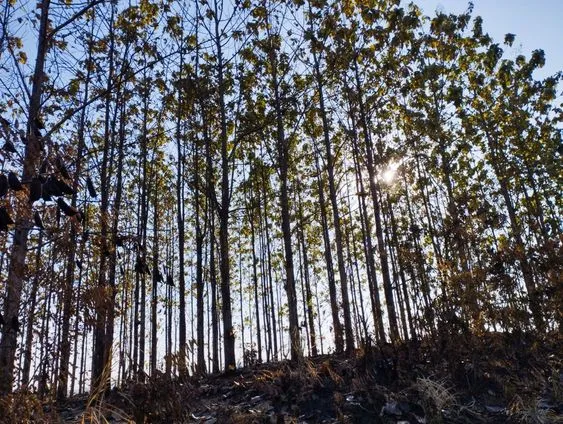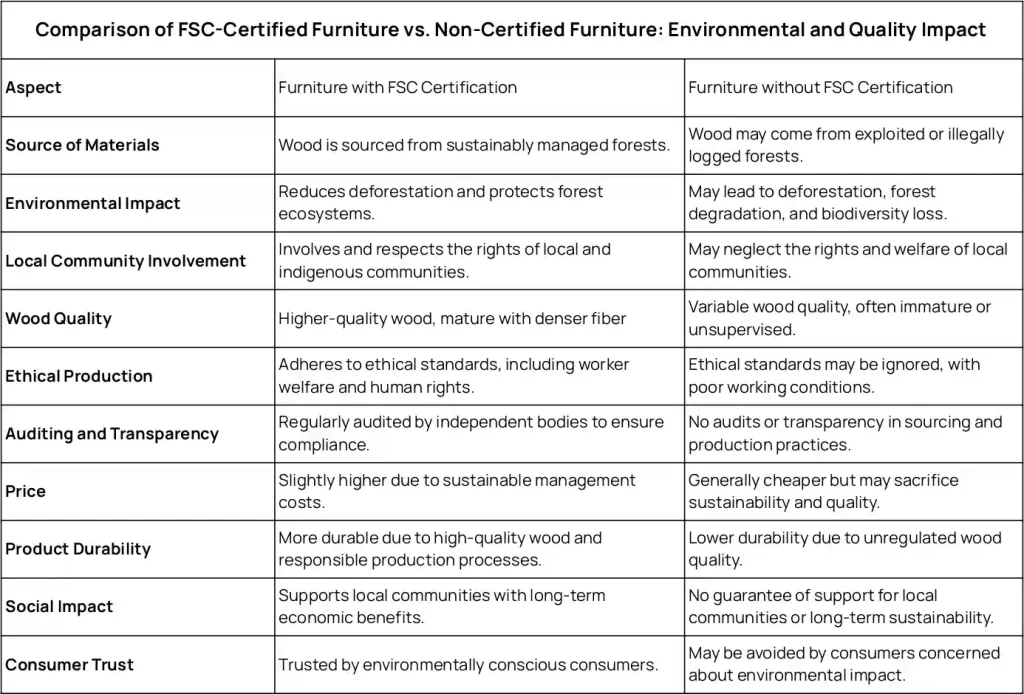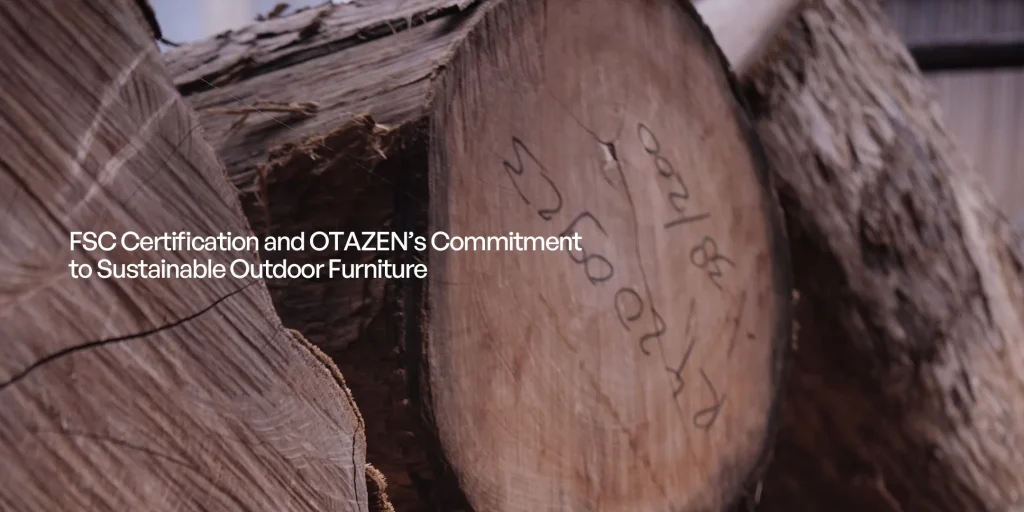Teak is a popular choice for outdoor furniture, known for its durability and natural beauty. However, as the popularity of teak continues to rise, concerns have emerged regarding the environmental impact of teak logging. This is where the FSC Certification plays a critical role in ensuring responsible forest management and sustainable production practices.
This article explores the history and purpose of the FSC and why its certification is vital for teak furniture. Furthermore, we will discuss Otazen’s strong commitment to sustainability.
History and Purpose of the FSC

The Forest Stewardship Council (FSC) is an international organization that certifies products derived from forests. It was established in 1993 in response to growing global concerns about unsustainable logging practices. The FSC was formed after the 1992 Earth Summit in Rio. Stakeholders met to address issues like illegal logging, deforestation, and harmful forestry practices. The outcome was the agreement that international standards were necessary to ensure sustainable forest management.
Main Objectives of the FSC
- The FSC manages forests to maintain ecosystem balance, protect biodiversity, and preserve ecological functions.
- It emphasizes the importance of respecting the rights of indigenous peoples and local communities who depend on forests.
- The FSC uses strict standards and transparent audits to verify all claims about forest management and products.
Why Is FSC Certification Important for Teak Furniture?
Teak furniture, particularly for outdoor use, attracts many due to its durability and timeless aesthetic appeal. Teak has become the best choice for outdoor furniture in hotels, resorts, and private properties.
Growing demand for teak and its high price have caused widespread illegal logging. This threatens ecosystems and biodiversity. Therefore, it is crucial that teak furniture comes with FSC certification.
Reasons Why Teak Furniture Needs FSC Certification

Sustainable Forest Management
Responsible forest managers source FSC-certified teak, replacing each felled tree with a new one. In addition, the process involves local communities and respects their rights. Forests should provide long-term benefits to communities without harming the environment. The FSC ensures transparency and verifies all forest management claims. As a result, forest management not only provides economic benefits but also supports environmental preservation for future generations.
Preventing Deforestation and Forest Degradation
The high demand for teak often leads to large-scale exploitation of forests. The FSC plans and controls teak logging, ensuring it follows strict standards. FSC performs ecosystem analysis and limits annual tree harvesting. These measures prevent deforestation and forest degradation, maintaining forest quality and function. By choosing FSC-certified teak furniture, consumers contribute to the preservation of ecosystems.
Ethical Production Practices
The FSC emphasizes ethical production, ensuring logging respects human rights, protects workers, and supports local communities. Ethical logging involves several key elements. Employers must treat forest workers fairly, providing proper wages and benefits, including health and safety protections. FSC certification requires companies to provide safe work environments, including protective equipment, training, and accident prevention policies. These standards make wood production responsible, sustainable, and beneficial to involved communities.
Higher Wood Quality
FSC-certified wood is of higher quality since mature teak has denser, stronger fibers. This wood offers better strength and a more attractive texture, enhancing the product’s beauty. Proper management involves planting, nurturing, and harvesting to select only high-quality wood. This higher-quality wood also contributes to the durability of the products, making them last longer.
Otazen’s Strong Commitment to Sustainability

Otazen understands the importance of sustainability in the furniture industry, particularly with growing awareness of the environmental impact of deforestation and natural resource exploitation. As a result, Otazen commits to business practices that produce high-quality products and take responsibility for the environment.
Using FSC-Certified Teak Wood
A tangible demonstration of Otazen’s commitment to sustainability is its use of FSC-certified teak wood. FSC Certification ensures logging and forest management follow high standards, protecting biodiversity and forest ecosystems. By sourcing wood from responsibly managed forests, Otazen contributes to ecosystem preservation and promotes sustainable forestry practices.
Eco-Friendly Production Processes
Otazen ensures every step in their production chain follows environmental sustainability guidelines. All processes, from design to transportation, energy use, and information management, are efficient and sustainable. Otazen manages planning, operations, and logistics to minimize environmental impact at every production stage.
Focus on Durable Products
By using FSC-certified teak and the finest craftsmanship, Otazen ensures that its outdoor furniture has a long lifespan. Consumers recognize FSC-certified wood for its strength and durability, especially in outdoor use.
Durable furniture means consumers do not need to replace their products frequently. This not only benefits consumers economically but also has a positive environmental impact. Less frequent furniture replacement reduces production demand, conserving natural resources and cutting manufacturing energy use.
Conclusion
In the world of outdoor furniture, using FSC-certified teak wood not only signifies high quality but also reflects environmental responsibility. The FSC Certification guarantees sustainable logging, protecting forest ecosystems and supporting local communities’ well-being. Otazen, with its commitment to sustainability, has made these principles the foundation of every stage of production. By using FSC-certified teak and eco-friendly practices, Otazen creates durable, beautiful furniture that helps preserve the environment.

